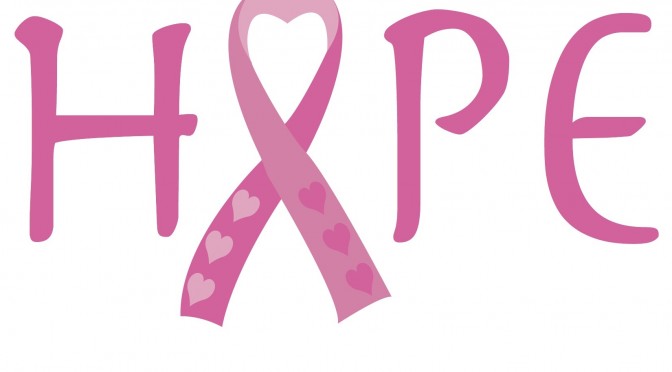
(MassReport.com) Before we start, let me give you a little bit of background information on Susan G. Komen. Komen is an organization that emerged in 1982 who’s mission was to fight breast cancer. In fact, their original name was “The Susan G. Komen Breast Cancer Foundation”. Since 1982, they have donated over $1 billion dollars to breast cancer awareness, support, and research programs. They’re even responsible for the famous pink ribbon logo you see everywhere during breast cancer awareness month.
But it’s not all glitter glam underneath the surface. Komen has been under fire for many years for their contradictory business moves, such as signing labeling contracts with companies known to produce cancerous and carcinogenic products like PepsiCo. Komen pulls in around $55 million each year from these companies. And though they’re promoting breast cancer awareness, they’re being paid to have their logo on cancerous products. Sounds sensible.
Not to mention that this “non-profit” organization’s CEO Nancy Brinker gets paid an annual salary of over $684,000 a year. Living comfortably there, Nancy?
So the contradictory nature of this organization is very clear. And what’s even clearer is this “non-profit” organization is very much profitable.
Susan G Komen Breast Cancer Foundation claims organic food not safe – promoting cancer causing products
Komen has claimed that eating organic food could actually be worse for you than food riddled with pesticides. Specifically, they say this:
“…consumption of organic food is a controversial issue and high quality human research is lacking in this area. Specifically, claims of higher nutritional value and lower toxic contaminants in organic foods currently have little scientific evidence supporting pronounced benefits. Some studies have shown that organic food has a lower amount of pesticides, but research has not confirmed that lower amounts of pesticides are causally related to preventing certain diseases or conditions.”
While this isn’t entirely false, it’s very misleading. When the actual research that has been done is acknowledged with an “it exists”, then readers and supporters will widely disregard it. There have been several large studies confirming that not only do these vegetables have lower levels of pesticides, but contain more antioxidants and nutrients of a higher quality, including a 2014 study done in the UK.
Scientists Reviewed 343 Studies to see if Organic Food is Better for you. Here’s what they Found Out
Researchers found that organically grown crops contain anywhere from 18-69% more antioxidants and 10-100 times less pesticide residue. When plants aren’t sprayed with synthetic pesticides, they typically produce higher more phenols and polyphenols to protect themselves. These compounds have been found to play a powerful role in boosting the immune system.
Shouldn’t an organization aimed to fight cancer be more aware of these types of things? Perhaps they are aware and they’re just ignoring it? After all, how would they make $55 million from companies producing synthetic products if everybody started eating organic food?
This is what happens when causes become commercialized. The people in the commercial industry are already corrupted. Their goal in the end is profit, and that kind of ego is unacceptable when fighting a just cause, as the cause becomes that much more corruptible. I could never bash somebody for spreading cancer awareness. But I’ll certainly speak out against people who are using loss, fear, and sickness to turn a profit.
More about Susan G Komen Foundations Practices
Several water bottle retailers have partnered with the Komen Foundation. Single-use plastic water bottles commonly contain BPA, which has been linked to breast cancer tumor growth. For the 2008 model year, Ford Motor Company built a branded limited edition of 2500 Ford Mustang motorcars with a “Warriors in Pink” package as part of their long-running association with Komen; an additional 1000 were offered for 2009’s model year. A longitudinal study found that women employed in the automotive plastics industry are almost five times as likely to develop breast cancer prior to menopause, compared women in a control group.
In April 2010, Komen paired with fast food restaurant chain KFC to offer “Buckets for the Cure,” a promotion in which fried and grilled chicken was sold in pink branded buckets. The collaboration garnered criticism from media outlets, including The Colbert Report and Bitch magazine, and raised criticisms about the promotion of unhealthy eating habits and obesity, since obesity contributes to breast cancer. KFC contributed over $4.2 million to Komen, the largest single contribution in the organization’s history. The partnership with KFC, which has since ended, allowed Komen “to reach many millions of women that they had been unable to reach before,” said Brinker.
In April 2011, Komen introduced its own perfume brand, “Promise Me”, promoted by Komen CEO Nancy Brinker on the Home Shopping Network, only to encounter opposition due to coumarin, oxybenzone, toluene and galaxolide as potentially harmful ingredients. Komen stated its intention to have the product reformulated but has refused to withdraw existing stocks of the “Promise Me” product from distribution.
In October 2014, Houston-based oil field services company Baker Hughes was reported to have produced 1,000 pink drill bits to raise breast cancer awareness. The land drill bits are used to break up geologic formations in oil patches for hydraulic fracturing. These ties have been criticized, because of the more than 700 chemicals used in fracking more than one third are endocrine disruptors and at least one quarter increase the risk of cancer.
– See more at: http://massreport.com/susan-g-komen-claims-organic-food-may-be-harmful/#sthash.ThDZMiY7.dpuf
